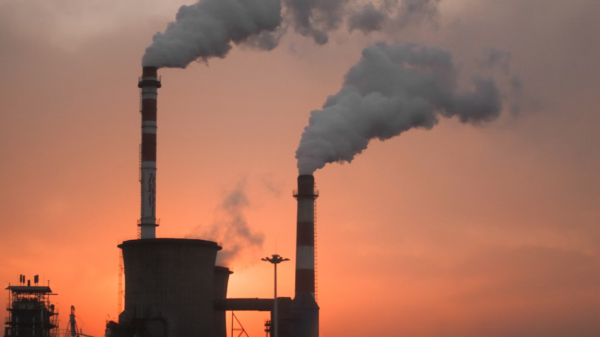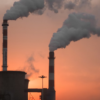Roar writer Amiya Johar on the Covid-19 pandemic and how humanity’s actions, if left unchecked, could spur further viruses in our future.
In November 2020, the Danish government ordered the culling of more than 15 million mink after a Coronavirus mutation transmissible to humans was discovered in mink farms across the country. Nearly 214 Coronavirus cases in the region have been attributed to the mink-related mutation. A controversial decision that may engender the collapse of the fur industry by incapacitating its largest exporter, the government was fearful of the mutation’s potential to jeopardize the efficacy of vaccines, which were then in development.
Individually euthanized in gas chambers, the mink’s carcasses were subsequently buried in shallow graves by PPE-clad workers. Later, however, the bodies rose above the soil due to an internal buildup of gases as a consequence of the decomposition process. This ignited fears of transmission to wildlife wandering the area; a wild mink in Utah tested positive for the coronavirus, suspected to have been infected by farmed mink. A zoonotic virus transmitted to humans from wet markets and a mutation infecting humans originating in fur farms – it is alarmingly simple to deduce what these share in common.Â
Scientists are especially concerned about the pandemic-causing potential of zoonotic viruses. 3 in 4 new infectious disease outbreaks each year are caused by zoonotic viruses; the rising frequency of their emergence is unprecedented. The last century has witnessed a barrage of new zoonotic diseases, including Ebola, SARS, MERS, Zika, HIV/AIDS, H1N1 (swine flu), and Covid-19, which have been transmitted from a host of wildlife including primates, bats, poultry, and mosquitos. Fears over future pandemics are mounting as the global population skyrockets and humans relentlessly encroach upon natural ecosystems and exploit their resources. The infamous instigators of climate change are the same ones driving the forces of looming pandemics. Nature is deceptively intertwined, and the consequences of climate change and unsustainable human activity are dangerously tangible. We have now begun experiencing them.
Deforestation occurring in the Earth’s green belts for the creation of pastures and farmland is exposing human communities to zoonotic viruses that would otherwise remain deeply shrouded within tropical rainforests. As unsustainably designed agricultural practices surge to shoulder the burden of escalating global food demand, deforestation exacerbates habitat loss. The destruction of natural ecosystems is driving wildlife deeper into human communities, further rendering us vulnerable to zoonotic viruses. The trade of exotic animals and illegal wildlife further aggravates our peril, exposing humans to high-risk fauna and the communicable viruses they carry.
Furthermore, the sheer scale of livestock rearing and fur farming occurring in contemporary times is enough to invite disaster. Aside from ethical and environmental concerns, these animals are ideal reservoirs for zoonotic viruses due to their rearing in unsanitary conditions, in cramped spaces, and often with unnatural diets. This was aptly exemplified in the case of mutated Coronavirus lurking in farmed Danish mink, and the widespread H1N1 (swine flu) pandemic of 2009. Dismayingly, such factors are continually driving animal and human communities into closer contact, increasing spillover events where zoonotic viruses transmit to humans. Zoonotic diseases are not solely consequential to human health – animal reinfection by humans could eradicate critically endangered animals and keystone species. Such extinctions would further jeopardize the ecological balance, amplifying climate change and the risk of pandemics. The unrelenting human exploitation of natural resources is leading to a reckoning.

Endangered primates such as mountain gorillas are particularly vulnerable to the Coronavirus due to their genetic commonalities with humans.
Epidemiologists are forewarning the occurrence of another pandemic within our lifetimes – perhaps due to a mutation of the coronavirus. This virus, as has been seen before, could fester within these animals, lying dormant for years and mutating until it possibly re-transmits to a human host as a new pandemic-causing strain. In an increasingly globalized world, a single undetected infection has the potential to balloon into a worldwide pandemic – a phenomenon witnessed by us firsthand in 2020. Climate scientists, however, declare that all hope is not lost. While eventual zoonotic outbreaks may be unpreventable, their frequency can be decelerated.Â
Scientists estimate that nearly 1.7 million viruses remain undiscovered, half of which are transmissible to humans. In order to safeguard our collective future, the Covid-19 pandemic must cause an awakening of widespread social responsibility. Preserving biodiversity will preserve the fate of the human species. Far-sighted pandemic prevention is rooted in long-term ecological conservation, not in the techno-centric, haphazard responses seen in the Coronavirus pandemic. Institutional changes must be implemented to deter deforestation, and factory-farming must be halted.
It is each individual’s responsibility to diminish the demand for products which are contributing to environmental infringement and withdraw corporations’ monetary incentive to exploit natural resources. The world must act urgently to reconfigure its diet and drastically reduce its meat consumption. Livestock is the ideal intermediary between wildlife and humans, serving as a prime transmission sources for zoonotic viruses. Traditional meat production is our fatal Achilles’ heel. There is far too much at stake to regard dietary preferences as political statements. It is now a question of global health and sustaining future generations.
Epidemiologists fear we are entering an age of pandemics as a consequence of this ongoing environmental crisis. We are presently living through the Holocene extinction – the sixth mass extinction provoked by human activity. Nature is straining to sustain the human species; we are already witnessing the palpable consequences of our actions and everyday lifestyle choices. We must act now, for we are not immune to extinction.
BA Culture, Media and Creative Industries student. Writer for Roar News' Culture and Comment. Poet. Artist. Puppy person.



















